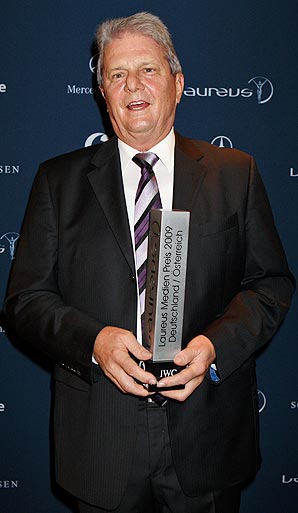1899 Hoffenheim's sale of Gustavo sets dangerous precedent
That said, the power struggle between Hopp and Ralf Rangnick, the stubborn and principled manager, was only going to have one outcome: Rangnick resigned when Brazilian defender Luiz Gustavo was sold to champions Bayern Munich for $22.3 million on New Year's Day.
"It's unheard of that a player is sold without the knowledge of the manager," said Rangnick, 52.
To make matters worse, he had to hear the news from the agent of David Alaba. The 18-year-old Bayern Munich midfielder will go on loan to Hoffenheim as part of the Gustavo deal. Again, Rangnick was completely in the dark.
"It was a little unfortunate," said TSG president Peter Hofmann, but he refused to apologize to Rangnick.
This transfer raises a lot of interesting questions, first and foremost about money. Why, the club's supporters would be entitled to ask, would a billionaire cash in on a player rather than keep him, given 1899 has a decent chance to get into a European competition next season? The answer goes back to a famous Hopp quote from 2007. "I'm not Roman Abramovich," he told reporters at the time. What he meant was that he wouldn't continue to pump hundreds of millions into the small club from the southwest of Germany until it reached the Champions League and became a European heavyweight. Hopp, who has invested in a number of other local sports teams, was after long-term viability instead.
"We are a modest club with a 30,000-seat stadium and 6,000 members," he said on Monday. "Obviously we have sporting ambitions, but they have to be in line with our economic framework."
Luiz Gustavo's sale to Bayern and the $26.3 million Hoffenheim received this summer when another Brazilian, midfielder Carlos Eduardo, was sold to Rubin Kazan (Russia) were, from Hopp's point of view, no-brainer decisions. Hoffenheim made more than a $39.5 million profit on the duo, enough to cover its annual budget without recourse to Hopp's personal funds.
Rangnick had other plans. He thought that Hoffenheim was only a couple of quality players away from competing with the best teams in the league. Hopp, however, shunned the financial risk such acquisitions might pose.
"The ambitious aim of the manager to play in the Champions League would have led to a dangerous course and possibly resulted in us going under," he told Bild on the phone from his holidays in Florida.
Financial consolidation and self-sustainability have, ironically, become the order of the day at Chelsea, too. UEFA financial fairplay regulations and Abramovich's strong desire to see the Premier League champions achieve financial independence have weakened the squad to the point where the Russian might have to reconsider his stance.
In Germany, one might have expected that league rivals would greet Hopp's cautious approach with a sigh of relief. Instead, the transfer saga has led to a renewed debate about the ownership rules in the Bundesliga. The German Football League (DFL) is officially investigating whether Hopp violated regulations.
To put it simply, German football does not allow clubs to be owned by any individual. A majority of shares with voting rights (50 percent plus one share) must always lie with the club members. (VfL Wolfsburg and Bayer Leverkusen, two company-owned clubs, are exceptions to the rule, as both teams were originally set up by their employers and always sponsored by the companies.) Hopp only owns 49 percent of Hoffenheim's holding company in compliance with the rules. But in reality, it is very much his club: close confidants of his run 1899 on his behalf and it would not be able to meet its financial obligations without his generous "donations".
The fact that Hopp personally took part in the Luiz Gustavo negotiations with Bayern in Munich despite being a non-executive board member provided proof -- if any was still needed -- that the current arrangement is a bit of a sham. Dortmund CEO Hans-Joachim Watzke, the most outspoken opponent of ownership liberalization in the league, is wary that Hopp's not-so-secret control might now set a precedent.
"We have to protect ourselves against investors influencing operative matters," he warned. "The DFL needs to look very closely [at this setup]. Doors will be opened that can't be closed anymore."
The threat to the existing order is not just theoretical. Down in the fourth division, RB Leipzig, a club sponsored and effectively owned by the Red Bull company, wants to gate-crash the Bundesliga party as quickly as possible. And once it makes it to the top flight, its ambitions will surely not stop at being a well-run, financially stable club. No wonder Ralf Rangnick was immediately linked with taking over the reigns at the newly built Red Bull Arena.





